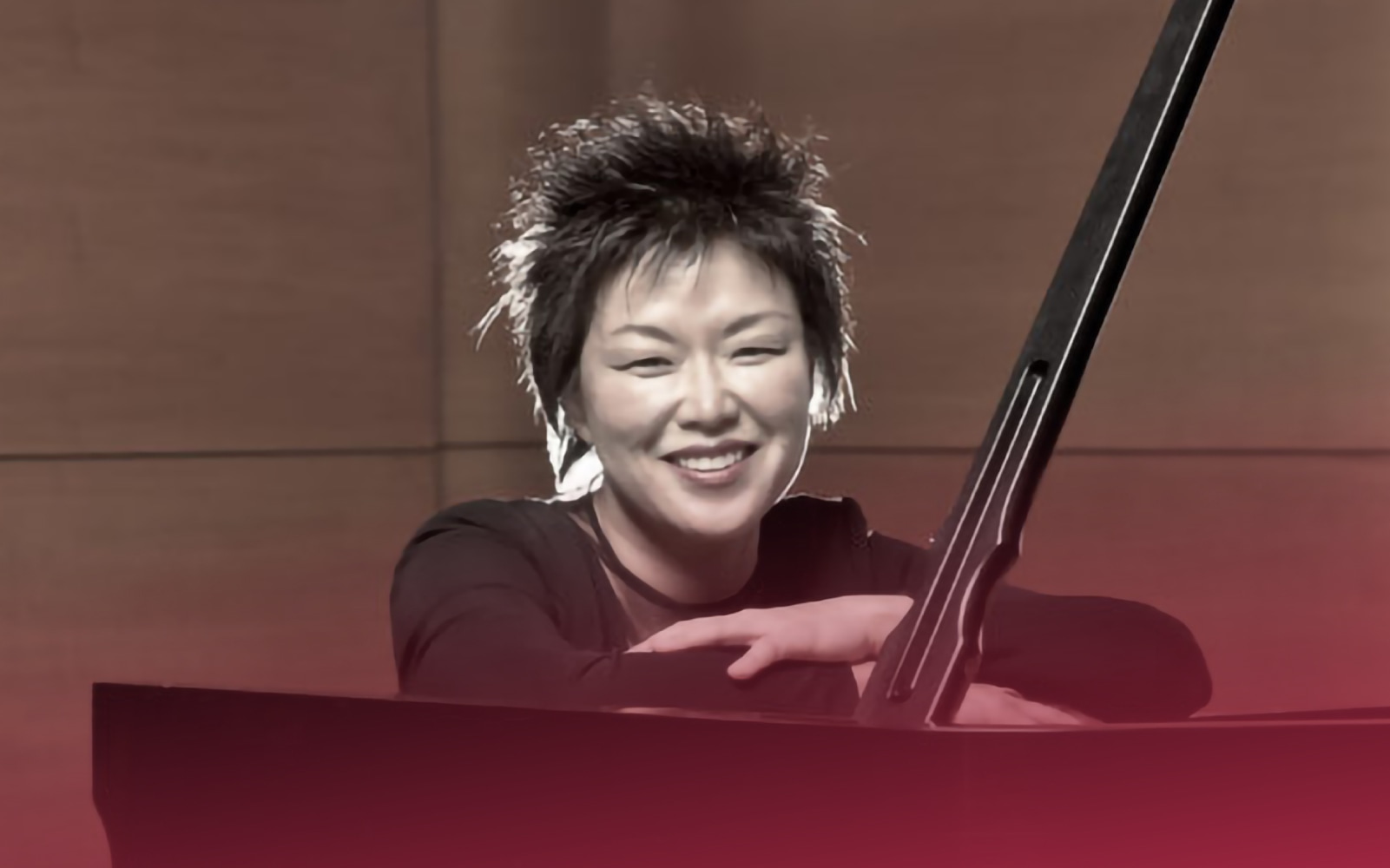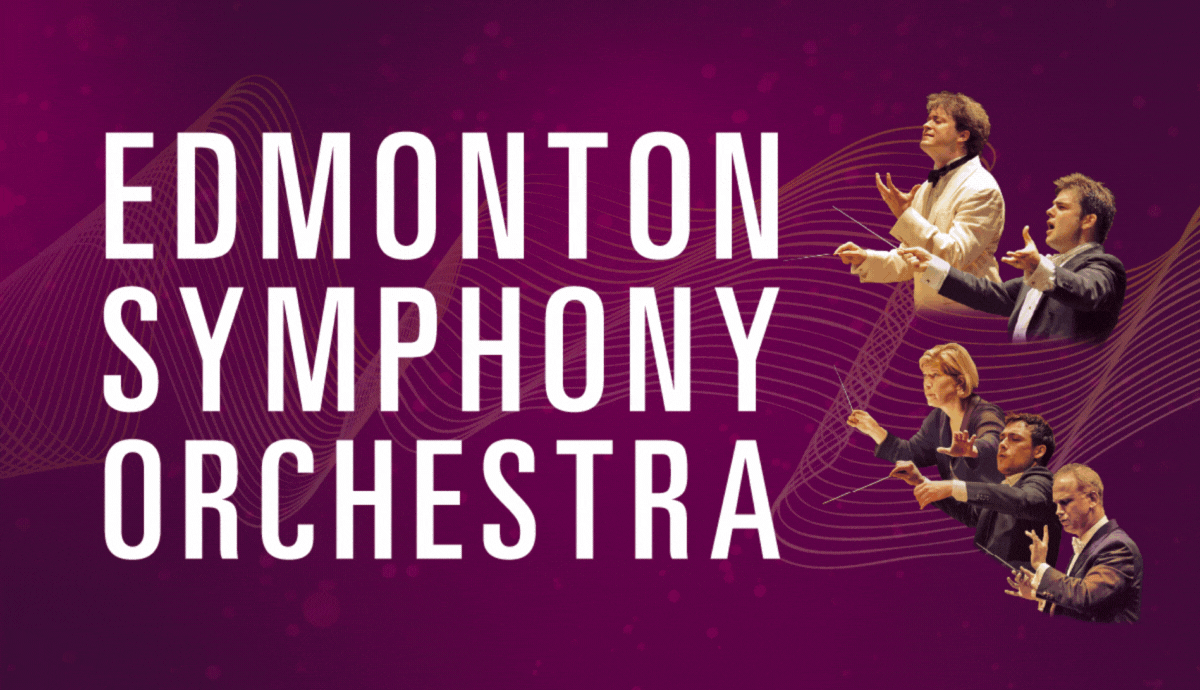Pianist Katherine Chi Returns to the Winspear Stage
December 1, 2022

By D.T. Baker, Musicologist
Someday, we will hopefully all look back on the last few years and be able to put things in perspective. Balance, whatever that means, will be restored for each of us. Like many, Canadian pianist Katherine Chi is still searching for balance. But as she gets ready for her welcome return to the Winspear stage in January, when she will be the soloist for the passionate energy of the First Piano Concerto of Johannes Brahms, it sounds like she’s beginning to find it.
“Of course, all the concerts were shut down, so anything I did turned out to be very online, as everyone else had to,” she recalled of her recent past, from her home in Cambridge, Massachusetts. “I did some online concerts and performances, and I started to make some videos, which was interesting – it’s a whole different thing.”
Katherine laughs as she recalls making videos of piano duets in which she played both parts and synched them together. “It was interesting because the idea of spontaneity and working, for example if you’re doing a concerto, you have so many musicians plus a conductor dealing with the atmosphere of the concert hall and the myriad psychological things that you go through in a performance. And having to navigate through all that – it’s just completely gone, right? You’re alone in the studio with a camera on you and you’re trying to play together with yourself.”
Since becoming the first Canadian to win the Calgary-based Honens International Piano Competition in 2000, Katherine Chi has been a regular guest with the Edmonton Symphony Orchestra, with appearances now in double digits, and there does not seem to be a concerto, a genre, even a program she isn’t willing to take on. So it’s remarkable that her January 19 & 21 performances will mark the first time she has played the Brahms Concerto No. 1 with orchestra.
“One of my best friends when I was growing up, it was one of her warhorses,” she recalls. “She would prepare it for a competition, and I would always be her second piano part, so I listened and participated on the orchestral side so many times that I feel like I know the piano part. And I’ve studied it, of course, but never played it with an orchestra. So this is the first.”
The whole idea of balance is certainly one that arises with this concerto. Brahms was adamant that the piano and the orchestra be equal partners, calling the work a concerto for orchestra and piano as often as he called it a concerto for piano and orchestra. So maybe getting to know the orchestral part is a big help in getting ready to debut the soloist’s role for Katherine.
“When you’re in your practice room, you take your piano part, but you have to construct everything together as if the orchestra was inside the room with you, because this piece is so intertwined,” she feels. “You can’t play a phrase without the orchestra having to play a huge part – it’s sort of like you can’t have a complex meal without having all the ingredients. So when you’re practicing, you don’t have all of the ‘live’ ingredients – but the score is there, you’re working with the score all the time. The good work you’re doing in the practice room is you’re learning everything.”
Brahms’ concerto is large-scale. The ideas are big, the passion is big, the mood is turbulent and often driving. It premiered in 1859, when he was 25 years old. “There are a lot of things in this piece that are technically difficult,” Ms. Chi notes. “The ‘orchestration’ in the hands, it’s physically challenging – and then there’s the musical complexity. There are many elements, almost to the point of being cataclysmic – but this is young Brahms wanting to make a mark. But he didn’t do it at the expense of virtuosity. He wanted to create a piece that was epic.”
Brahms himself would find balance – his second concerto (he wrote only the two piano concertos) came 22 years later, when his reputation was assured. It is a more measured work as compared to the grandeur of his first. Katherine Chi has not played a lot of concerts since the world began opening up to live performance in the past year or so, but she’s done enough to allow her to realize just how much she missed it all. For now, the balance has swung over to the joy of performing once again.
“I haven’t had a lot of concerts, but I’ve had some interactions in the past year or so, festivals, things like that,” she says. “And it does feel different, it doesn’t feel like, ‘Oh, COVID’s gone, let’s get back on stage.’ I think one thing that really touches me deeply is that connection which I took for granted. It’s the fact that there are people willing to come to a hall to listen to music that you love and want to play and share. And then the whole component of an orchestra willing to do that, and the shared responsibility, and the moment of the actual performance – of course, I always appreciated the opportunity, but having that void for such a long time – having that feeling again is profound.”
Brahms' First Piano Concerto

January 19 & 21 ● 7:30 PM
Find Tickets


